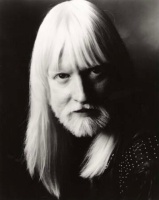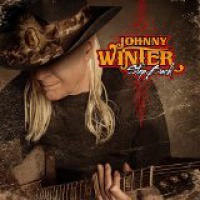June, 2016
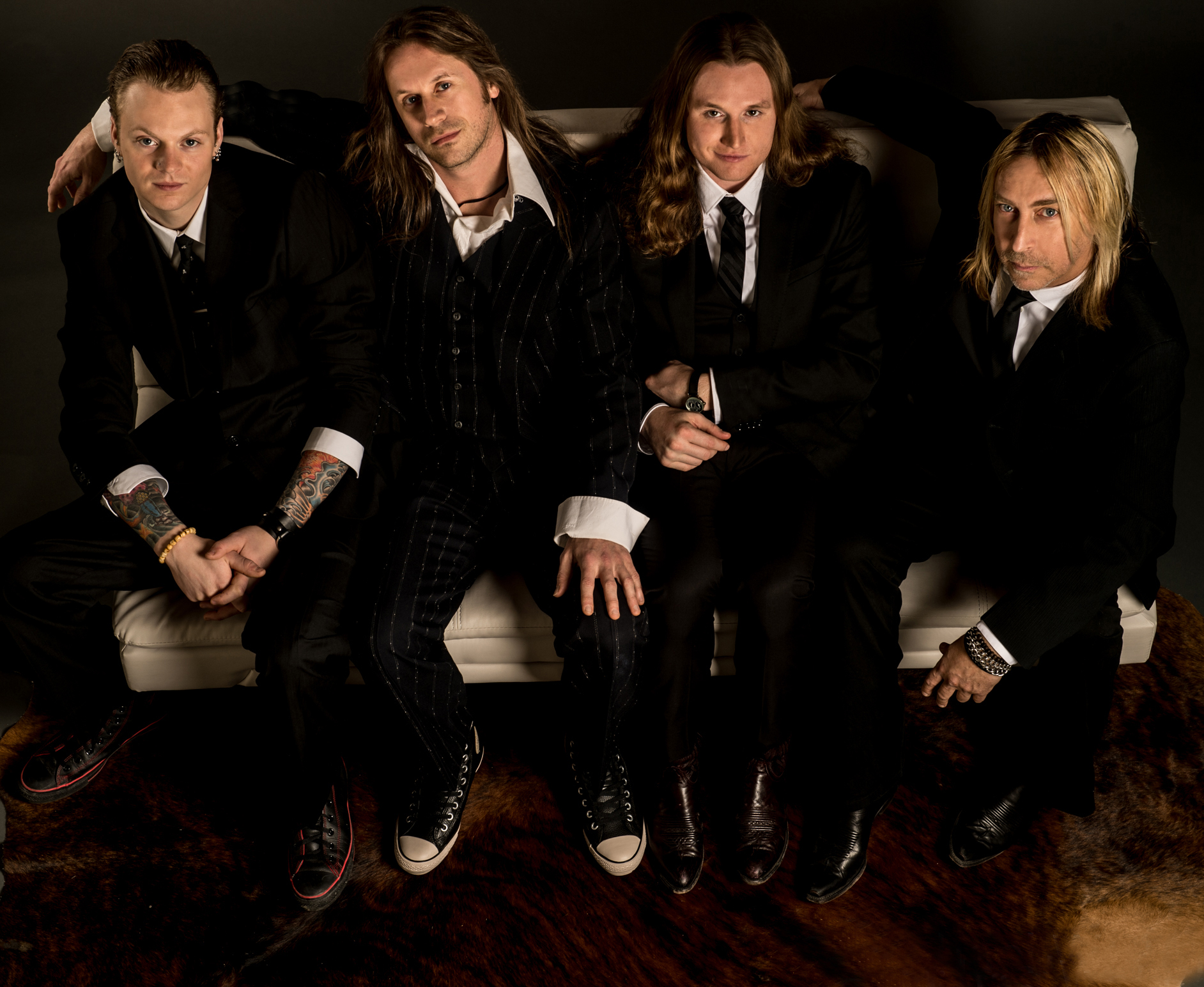 It isn’t a stretch at all to say that Johnny Winter was one of the preeminent blues men of our time. Revered and respected, we lost him far too soon on July 14th 2014.
It isn’t a stretch at all to say that Johnny Winter was one of the preeminent blues men of our time. Revered and respected, we lost him far too soon on July 14th 2014.
Before his death, I had the privilege of interviewing Johnny twice. Both interviews were orchestrated by his dear friend and manager, Paul Nelson. I recently interviewed Paul about his new album (included with this interview in its entirety on Boomerocity.com) but we started our chat about his late friend. At the outset, I said that, while I didn’t want to make this a “puff piece,” I also didn’t want this to a negative chat about his late, dear friend. Nelson jumped right on the comment.
“You know what? Everything was common knowledge. Even Johnny asked back in the day, ‘Should I be talking about this stuff?’ I go ‘yes.’ I go, “You need to say everything that you did. You went down to the dumps and came back up, and I know if you can that, do it at full swing. That’s what we gotta do. Plus, it’s going to be educational for people and you can help some people get off of drugs and this and that.’
So he was totally open about the shape he was in and what he was doing, so it’s all good.”
This was our first chat since Winter’s passing so I asked about how it had been for him in the days immediately after his dear friend’s death.
“It wasn’t easy. There is a lot of family involved, the band involved, but we put together the Johnny Winter All-Star shows, and that was great to honor Johnny. It was therapeutic for the band as well. And we still do it. We’re doing a series of these in February and March, the movie’s coming out, March 4 “Down and Dirty.” We had guests. I went to Jamaica, we did it with Govt. Mule and Warren Haynes and Sonny (Landreth) – good friends of mine. Edgar (Winter, Johnny’s brother) did one – actually, online at Buddy Guy’s at his Legends club. Ronnie Baker Brooks, Debbie Davies, Joe Lewis Walker, Earl Slick, Mike Zito.
“So we’ve been doing tons of these. It’s kind of like the Jimi Hendrix Experience thing. That started off as one show of B. B. King’s. It was birthday celebration for Hendrix. Johnny and I were on it and they developed to what you see now, this touring thing.
“We’ve lost so many important artists, each one, even B. B. King has the B. B. King All-Star Band. His drummer, T. C., put that together. It’s important for everyone. We have to keep his music going and it’s like I said, the movie’s coming out so is what we do, is they screen the movie at these concerts and then they see us play. These are the original members and we also have original members from Johnny’s past. Bobby Torello, the guy that played on previous albums and previous tours. So we’ve been doing that.
“Johnny had such a comeback toward the end, he got so much healthier except he had the emphysema, which finally was his downfall. But other than that, people saw this resurgence and that actually what the movie’s about, among other things about rock history; his history, and Blues.”
The last time Nelson and I talked about three or four years ago, I met with him and Johnny when they were appearing in Dallas. Johnny’s favorite guitar had just recently been stolen. I asked Paul if the guitar had ever been recovered.
“Yes, and the reason why we found it was because I didn’t publicize it. The key is to never publicize something like that because then it goes deeper and deeper into hiding. Luckily a fan saw it at a store being sold by someone else. He notified us, sent it over and we got the Laser back. It was stolen in Massachusetts. We got it back and that’s one of those rare things. You have an instrument like that and what can you do with it? The biggest fear is that it goes into hibernation and then comes back decades. Do not open until 2050. It worked.”
Before we switched to chatting about Paul’s new CD, I asked him for some closing thoughts about Johnny, maybe something about him that might surprise fans or something that he’d like to share that maybe they’re not hearing about the late blues master.
“He had a great sense of humor. Not only was he a great musician artist, but his love for the Blues made him, and I’ve only seen a few like this, like Billy Gibbons, Bill Wax, who works Bluesville, Dick Sherman, the producer. Blues historians, just knew everything about who played this, who was on this recording, who had the drinking problem or all the little nuances of the Blues, he knew everything and I was honored that he took me under his wing and that he turned me onto that. ‘Get this album and listen to this specific list, instead of going out and buying all the records by Chuck Berry, or all the records by different people.’ This is what I learned. This is what we all learned back in the day. That was great.
“On the tour bus, he listened to Blues. He had 15,000 songs on his IPod and he listened to it from when he awoke until showtime and then afterwards, every day. He was just constantly inputting that information and then he would, those lists would come up during that night’s performance. He was a sponge.
“He was a great guy. At the end of those past few years, he was totally clean. A lot of people don’t know I had him get laser surgery. He was no longer legally blind. That was a big deal. And then, of course, the methadone was gone, the drinking was gone, the smoking was gone. He was really enjoying his life toward the end. He was completely free of all that stuff, and the fans were noticing it. The way he was performing, that’s why it was so important to put out that record, Roots, Step Back, which got he and I the Grammies. What’s so important is that his voice was so strong, his playing was so much stronger, so that was the key. And then when we appeared on Letterman, he hadn’t been on TV because of his health. But this was a huge thing in TV, you can’t really lie. He had added a couple of pounds but other than that, he performed. He heard the whole record. And this movie, he saw the whole movie as well. He did witness everything that’s coming out now; which was important.”
I asked Nelson if he felt Winter would like how he’s being remembered and what his legacy is so far?
“Absolutely. There was a reason why he wasn’t up there with his cohorts and his old 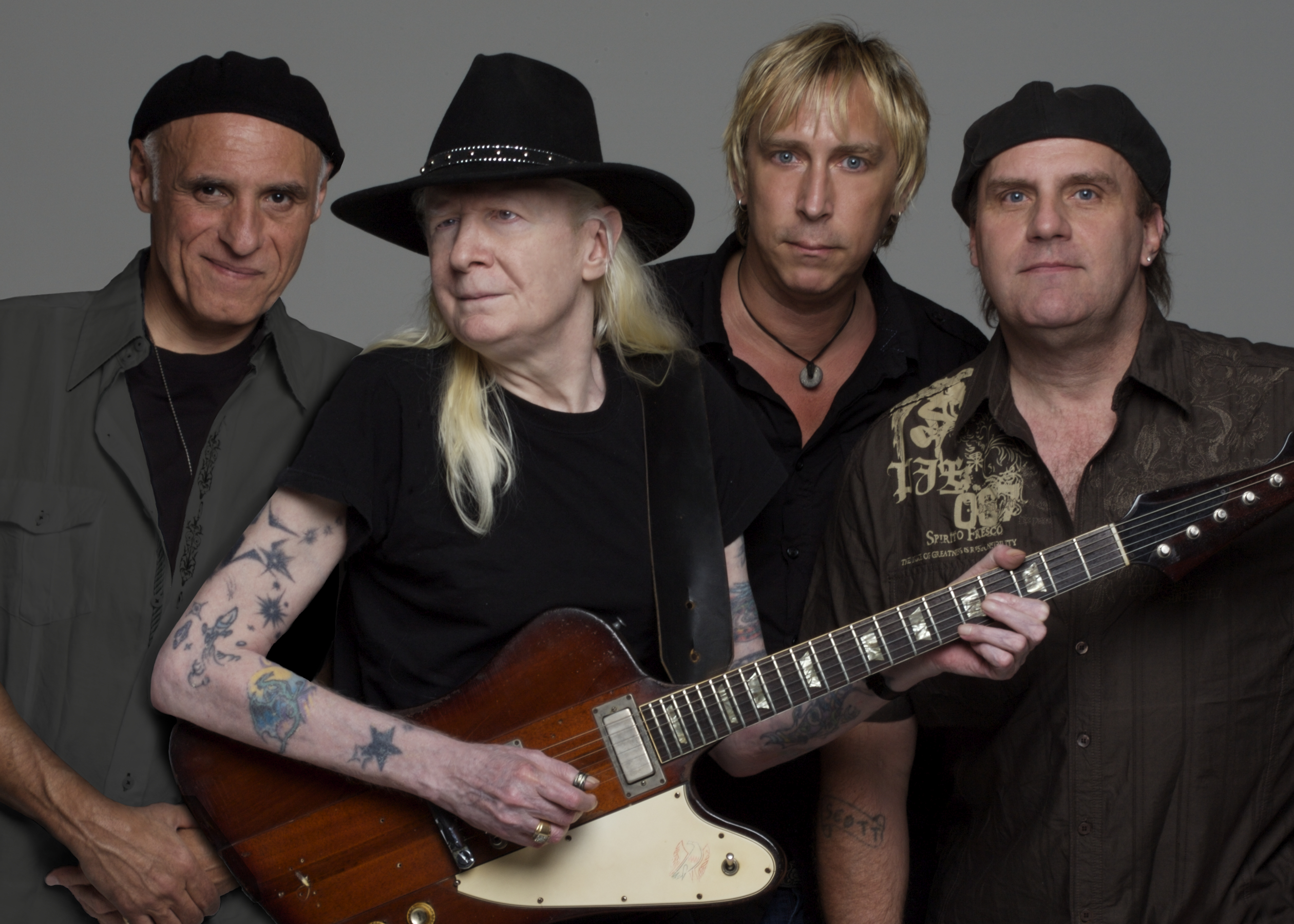 management, he pushed the envelope too. He made Ozzy Osborne look like he had training wheels. But once that was cleaned up, everybody started realizing what an important piece of the puzzle Johnny was and how Rolling Stone should’ve mentioned him in the top 10 at least. I mean, it’s Hendrix, Johnny and, then (Stevie Ray) Vaughan. A lot of people don’t know that Stevie Ray Vaughan used to come over to Johnny’s in Texas and hang around with him. Johnny would teach him riffs.
management, he pushed the envelope too. He made Ozzy Osborne look like he had training wheels. But once that was cleaned up, everybody started realizing what an important piece of the puzzle Johnny was and how Rolling Stone should’ve mentioned him in the top 10 at least. I mean, it’s Hendrix, Johnny and, then (Stevie Ray) Vaughan. A lot of people don’t know that Stevie Ray Vaughan used to come over to Johnny’s in Texas and hang around with him. Johnny would teach him riffs.
“So Vaughan was Johnny’s student. It’s that important. I think that the Grammy solidified it. The TV appearances, Crossroads, these were all important things for him. I was honored that he trusted me enough and we were close friends, to help this out, to know what had to be done to get him back to that position.
"And, now, you have to buy Johnny’s stuff, you have to listen to Johnny. The whole jam band resurgence is the way Johnny played. His connections with the Allman Brothers, his connections with Hendrix, his connections with The Beatles, his connection with Janis Joplin, his connections with Vaughan, he was everywhere in musical history for decades. Every major event. The 60s, 70s, 80s, 90s, the 90s were bad years. The movie described that. The movie is very enlightening about what happens. People are going to be surprised. They’ll finally see the man behind the music.”
Shifting to Nelson’s new CD, I asked him what was the story and motivation behind it and what did he set out to accomplish when he started making the album.
“I’ve been studying music for years. I studied with Steve Vai, with Michael Stern, Steve Kahn. I’ve toured with other bands and produced. Johnny was like, “Paul I know you’ve done a lot of other stuff, but I’m glad you just play blues with me. And we get along musically first.” That was first and foremost. He said, “I know no, you can play like Rick Derringer and do all that stuff.”
"We were always battling on guitar. He goes, “I like the fact that I know that you can play like that, but you don’t so that I can do my thing and we compliment each other really well.” And he was really proud of that, so that was cool.
"That musical background of all these styles that he recognized, he was actually going to be on this (CD). When Johnny passed, you have to continue on. We’re all artists, musicians, we have to do our thing so I continued playing, producing and all that. But I knew I wanted to do my own thing. I had done my own solo album - an instrumental thing – very ‘Eric Johnsony – before that, called “Look.” I had this singer that I’d produced a couple of years ago, and I had my eye on him from when I was working with his band; then the bass player, Chris Redan the drummer from Popa Chubby, Chris Alexander from Samantha Fish and then Morton Fredheim, who was actually number two on The Voice over in Europe. I said, ‘Let’s get together and start writing material.’
“So they came over and this stuff just started flowing out of me because I had such a great singer. This guy was like Paul Rogers on steroids. And then all of sudden it was like, ‘Whoa, wait a minute. I thought this was going to be this type of album?’ This stuff just spewed out of us. It was like retro, paying tribute to the 70s type of stuff, which everybody loves; but at the same time, it’s current.
“So all the different styles starting coming out, Jam, Southern Rock, Blues, and the lyrics started coming out of me; the music started coming out of me and it just happened.
“I got signed with Sony. They said, ‘We’ll put it out in February’ and then I have a separate deal with Sony Japan that comes out in April. I really wanted to write songs though. It’s inspirational when you work with a singer, though I didn’t want - there’s a real lack of front man nowadays. Now it’s just guitar players and singing. I’m going to be the one who changes it, but everybody professes that they love that kind of music, but then when you ask them to do it, they go, ‘Oh no.’ They’ve played guitars for years and then all of sudden they’re singers in a week. Now that I have a singer, the lyrics flow out. It’s so inspirational when you’re writing something and you know that you have the tools and the players to not worry whether it’s going to be good or not. It’s going to develop. While I’m writing this I go, ‘Boy, is this going to be something else when these guys get a hold of it’ and that’s what was happening. We made this real diverse package and, if you see the cover, it’s a cassette. That’s paying tribute to the past, but at the same time, ‘Bad Ass Generation’ refers to the term that everybody uses now to describe stuff, ‘Bad Ass.’ So, it’s us now appreciating from the past but still making sure that it’s current. And it’s doing really well.”
When I asked Paul how long it took to make the album, I was astonished by his answer.
"Three weeks, four weeks. I’m very particular and I had some good people working. I had an engineer, Phil Magnotti. He’s got like three Grammies, so he mixed it. I produced it. We really worked hard on it. The actual material was written in seven days."
Did it come out the way he wanted it to?
"Even better. There’s a million musicians saying that about their album as we speak, but I was really happy the way it came out because I used recording techniques of the past, but recording techniques of now. We recorded the drums a certain way, the guitars a certain way, the vocals a certain way. But we used today’s sound to beef that up. What if Boston recorded today? What if those guys recorded those same songs now and that kind of thing? We really analyzed and studied the school of the 70s before we started cooking, and then it just came out."
I asked if there was anything he did on the album that was like ‘I always wanted to do this in the studio and now’s my chance to do it?’ to which he replied:
“The whole thing was like that. I wanted to write and record stuff that reminded me of the stuff that influenced me. Luckily, everyone else was like that, as well. Aerosmith influences. Led Zeppelin influences. Tom Petty influences. All the other influences. We are at a really good time right now. Warren Haynes is a really close friend to all those guys. When you see the shows that are going on now, you’ll have someone play a blues song for the audience and then, all of a sudden, they’re playing a tribute to AC/DC. Then, they may be doing War Pigs from Sabbath and, then all of sudden, they’re doing Whipping Post. Then, all of sudden, Warren will bring out Scofield and now they’re doing Fusion. It’s the same crowd and they are looking going, ‘What?’
“I think the audiences are being groomed to be more open, which allows the artist to put more diverse stuff on one album. It’s not like you have to do this and you can’t change it, you can’t add any instrumentation, you can’t leave the blues world; you can’t leave the rock world, that kind of thing. Even Johnny got a lot of crap from being a rock/blues guy. He just wanted to be a blues purist. He hated when he was on top for rock. He thought he sold himself short, but now it’s okay to do that.
“We are at a good time. I thought that this album’s timing was perfect. It’s really getting a lot of airplay and catching people’s ears because the content, the lyric, the songs.”
As for what song Nelson would select as a “calling card” for the whole CD, he said:
“Actually, the tracks were placed strategically. The albums of the past - songs were put in to build up the listener, then bring them down, and then bring them back up at the crescendo at the end. That’s what going on.
“The first song, ‘Down Home Boogie,’ is one of those. I’m playing slide, which nobody knew that I did. Another one is ‘Roots of all Evil.’ A lot of people like that one. I like that one, too. I love the British kind of drum kind of groove to it. I love the tone of the guitars, the tightness, and then I’m a big fan of Danny Lewis from Gov’t Mule. He plays keys on ‘Keep It All Together.’ I love that song.
“Fans are, like, ‘I like tracks five and six’ and then another one ‘I like seven and eight’. I’m happy because no one is saying they don’t like anything, so all the songs are playable, airplay wise.”
One thing that stood out with me on the album was how, “Please Come Home”, has a bit of the Doors meets Ringo Starr meets Crosby, Stills and Nash. Pure musical brilliance. I asked Nelson to tell me the story behind that song.
“The mixing engineer goes, ‘Oh My God, this one’s a hit!’
“I wrote that with a singer at, like, four in the morning and we actually went to the rest of the band, we’re putting it together. We woke up and we’re like, ‘Hey, we wrote something last night and we apologize.’ They go, ‘What do you mean?’ We said, ‘Because it’s so different and we don’t know where it came from but we think we’re going to put it on the record.’
“When I brought it to the mixing engineer, he’s like, ‘This song, there’s something about it,’ to the point where it just got sent to the American Armed Forces Network, the radio for the military, ‘Please Come Home’.
“It’s got a 60s kind of thing and then all of a sudden an Allman Brothers kind of thing. It brings back memories of, like you said, those bands that you mentioned, absolutely. It came out of nowhere, that one. A lot of people are saying that one. You know a band will write all these heavy rock songs and, then, all of a sudden, that’s the one. They’re like, ‘Really? So that’s the one we have to play all the time?’ But we love it. We were so worried. This is a really different direction. Morton sang the hell out of it.
“Again, once I finished the album, I listened to it now as a fan, you have to separate yourself and go back and look from the outside of the chess game. This is the most I’ve been excited about my new record. There is something about this. This is actually something that I listened to. I put stuff out, then you go to the next album, the next album, but I keep on coming back to this. A lot of people do and they don’t stop listening to it. So, I’m really appreciative that it’s going over that well. I’m glad you mentioned that song because a lot of people are and that’s going to be the next lyric video that they put out for that one. They’re going to push that one.
Regarding touring in support of the CD, Paul said:
"Right now, I’m finishing playing on and producing a Paul Butterfield tribute album. Jimmy Vivino is on it. The keyboard player for Paul Butterfield band is on it. We’re working on getting Elvin Bishop, James Montgomery. We have Grace Kelly, the saxophone player from the Steve Colbert show. Then, we head out to do a two month run of the Johnny Winter All-Star stuff to coincide with the movie at the same time this comes out. In May, I start up with my band and my project and that’s what hits because Japan is going to release it so we’ll probably go over there."
As we wrapped up our chat, I asked Paul how he hoped to be remembered and what he hopes his legacy will be.
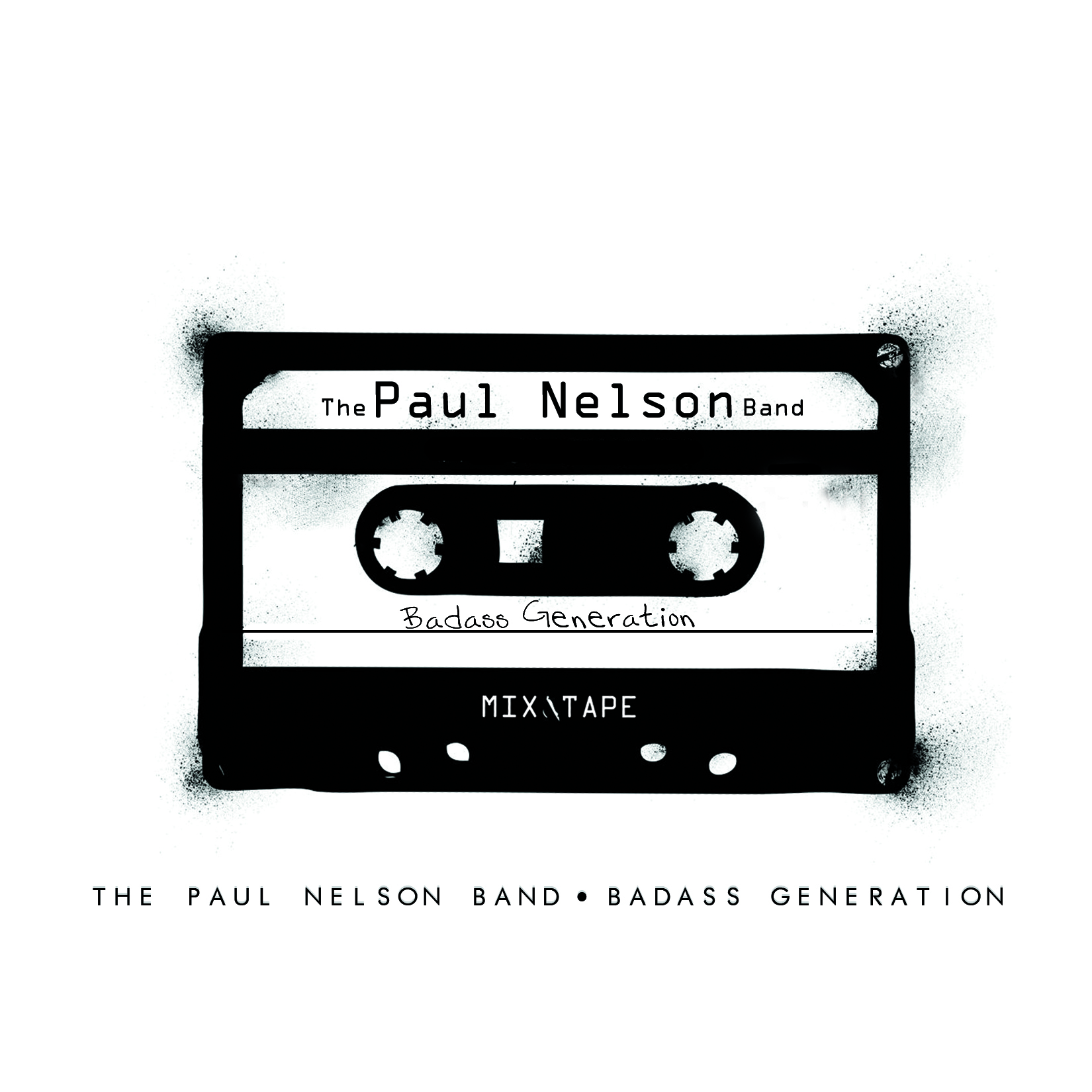 "I just want to write good music. I want people to enjoy it. That’s pretty strange because Johnny was asked that question a lot. He wanted on his headstone ‘Bluesman. That’s all he ever wanted to be. Myself, all I want to do is write music that I enjoy and that I know the people enjoy. It’s very important for me, because if they enjoy it, what I’ve been doing has been worth it. And, so far so good. You hear from the fans and they encourage you. They really help. The fans are really important because it’s your gauge that keeps you going saying, “you know what, keep on going, keep on doing it.” So I’ll keep on churning stuff out until that time, like you said."
"I just want to write good music. I want people to enjoy it. That’s pretty strange because Johnny was asked that question a lot. He wanted on his headstone ‘Bluesman. That’s all he ever wanted to be. Myself, all I want to do is write music that I enjoy and that I know the people enjoy. It’s very important for me, because if they enjoy it, what I’ve been doing has been worth it. And, so far so good. You hear from the fans and they encourage you. They really help. The fans are really important because it’s your gauge that keeps you going saying, “you know what, keep on going, keep on doing it.” So I’ll keep on churning stuff out until that time, like you said."
You can follow the latest happenings in Paul Nelson’s career by visiting PaulNelsonGuitar.com.
